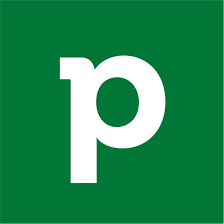- What is Marketing Automation?
- Marketing Automation Trends (Key Trends)
- Benefits of Marketing Automation (Key Statistics)
- Marketing Automation Adoption Statistics
- Marketing Automation ROI & Results Statistics
- Marketing Automation Limitations/Challenges Statistics
- Marketing Automation Statistics – Summary
The Ultimate List of Marketing Automation Statistics 2024


Table of Contents
- What is Marketing Automation?
- Marketing Automation Trends (Key Trends)
- Benefits of Marketing Automation (Key Statistics)
- Marketing Automation Adoption Statistics
- Marketing Automation ROI & Results Statistics
- Marketing Automation Limitations/Challenges Statistics
- Marketing Automation Statistics – Summary
Marketing Automation is now the industry norm. From chatbots to big data, this landscape is becoming more diverse and crowded every year. Customers now come to your business through many channels, and that’s why having a marketing automation strategy is now more of a requirement than a perk when it comes to owning a business.
To survive in this new tech era, your business needs automation. If you’re not sure what this is, you’ve come to the right place. We explain this in detail and provide you with an ultimate list of marketing automation statistics in 2024 to help grow your marketing efforts.
Let’s look at some highlights! But first…
What is Marketing Automation?
Marketing automation is simply the use of automation solutions to manage all the marketing procedures in a company. It is the technology that works marketing processes and multifunctional campaigns across multiple channels automatically. With marketing automation, businesses can target customers with automated messages across email, the web, social, text, etc. It helps with lead generation, and nurturing, as well as with measuring overall ROI on campaigns.
Marketing automation is not a new trend, but it is a growing one. The history of marketing automation starts way back in 1992, but it was only at a later stage, around 2003 when industrialization began to kick in. In recent years it’s become an essential business tool for millions of companies worldwide. Here are a few key trends for 2024:
Key Marketing Automation Statistics – Editor’s choice
- On average, 51% of companies are currently using Marketing automation. More than half of B2B companies (58%) plan to adopt the technology.
- Research and Markets anticipated the global marketing automation market size to reach USD 8.42 billion by 2027 (March 2020 survey)
- Forrester predicts that CMO investment for marketing automation will increase, even if the marketing spending globally keeps on falling through 2021
- According to Gartner’s latest annual CMO Spend Survey, 68% of CMOs expect their martech budget to increase by 2021.
Now that we’ve gone through a few interesting facts let’s dive in a bit deeper and look more in-depth at just how fas marketing automation is growing.
Marketing Automation Trends (Key Trends)
Machine learning and artificial intelligence
Machine learning and artificial intelligence (AI) are two crucial tactics that are predicted to grow exponentially in 2021. Machine learning and AI allow businesses to collect information about their audience and buyers and develop better campaigns for them in the future. Companies that can leverage machine learning and AI in conjunction with their automation software can maximize their campaigns’ effectiveness and have massive success.
Chatbots
Chatbots were the leading automation trend in 2020 and are projected to grow even more in 2021. Chatbots play a critical role in enhancing customer service and engagement, and with chatbots, business owners can have interactions with their customers and answer their questions without lifting a finger.
Automated social media marketing
Automated social media marketing is, yet again, a growing trend in 2021. Automated social media marketing allows business owners to create posts weeks in advance and schedule them to publish at a specific date and time. Tools like Hootsuite and Buffer make it easy to achieve this.
Personalized email automation
Email personalization plays a vital role in helping business owners deliver a tailored experience for their audience. An all-in-one software, like MarketingCloudFX, allows users to gather customer data, organize it, and use it to provide automated emails at the right time.
Benefits of Marketing Automation (Key Statistics)
1. 63% of companies using marketing automation outperformed competitors
According to Moosend, the current leading brands using marketing automation beat their competitors when it comes to sales and ROI. Digital advertising is set to be soon wholly automated, which will increase both revenues and the quality of ads.
2. Sales productivity increases by 14.5% after using marketing automation
77% of business owners had an increase in conversions after using marketing automation software, according to Sales Fusion. Additionally, marketing automation reduced marketing overhead by 12.2%, and The sales pipeline rate of B2B marketers using marketing automation increased by an average of 10%.
Marketers see the potential of marketing automation and are already taking advantage of the marketing automation market. Productivity, conversions, and sales rates are all positively impacted by marketing automation.
3. 80% of marketers saw an increase in the number of leads after using marketing automation software
80% of the top-performing companies using marketing automation technology for the last three or more years have already experienced the benefits of automation in terms of increased revenue and customer engagement.
Additionally, Email Monday reports that 63% of companies wholly or partly outsource marketing automation, which means the more significant part of the marketing automation industry is being outsourced at the moment. Only 37% of companies rely on themselves for their automation needs, while a mere 12% decide to leave it all to a specialist.
4. Using chatbots can help save up to 30% of customer support costs.
It is predicted that businesses spend nearly $1.3 trillion every year to service customer requests. For the companies that have incorporated chatbots into their marketing automation claim that chatbots can help save up to 30% of customer support costs, according to Chatbots Life.
Chatbots can help out a business, and it’s good to hear that 47% of consumers are open to buying items through a chatbot. By 2021, chatbots should take over 85% of customer service requests.
5. Automated social media posts and ads can save you more than 6 hours per week.
According to Instapage, The latest marketing automation stat reveals that you can save 6+ hours a week using automation in social media. Running your brand’s social media channels is already a challenge, but leaving it to the bots can free up your time for you to focus on what matters. Time is money, so you’re saving money by investing in technology.
Marketing Automation Adoption Statistics
6. 63% of marketers plan to increase their marketing automation budget this year
The marketing automation industry is growing and has become one of the most crucial trends in digital marketing. Marketers realize this potential, and 63% of marketers plan to increase their marketing automation budget this year, according to Invespcro.
7. 27% of companies say that they still consider themselves “new” to marketing automation
According to recent studies, 27% of companies say they still consider themselves “new” to marketing automation, whereas 86% of marketers consider “ease of use” to be the most critical factor when evaluating automation tools such as webinar platforms or email marketing software. This is only a small fraction of all companies and a testament to this marketing trend’s growth.
8. About 51% of companies are using marketing automation.
Marketing automation is not a new trend, but it is a growing one. According to Email Monday, About 51% of companies are using marketing automation in 2021. Marketing automation history can be dated back to 1992, but it was only at a later stage, around 2003 when industrialization began to kick in. In recent years it’s become a staple for millions of businesses worldwide.
9. 61% of companies say the implementation process of marketing automation was difficult
Creating personalized content and quality automation and integration appears to be among the most significant challenges, as 61% of companies say the implementation process of marketing automation was complicated in 2020. Maybe the solution is just to outsource it and leave it to the professionals.
10. 86% of marketers consider “ease of use” to be the most crucial factor when evaluating automation tools
From chatbots to big data, marketers, and businesses are looking for the easiest possible way to make their marketing efforts a lot easier. It does not come as a surprise that, according to Invespcro, 86% of marketers consider “ease of use” to be the most critical factor when evaluating automation tools.
Machine learning and artificial intelligence (AI) are two crucial technologies whose usage in marketing automation is predicted to grow exponentially in 2021. Additionally, chatbots, automated social media marketing, and personalized email automation are leading automation trends to look out for in 2021.
Marketing Automation ROI & Results Statistics
11. According to 65% of marketing influencers, increasing marketing ROI is the top priority for a marketing technology strategy to achieve
Businesses are in it to make money and to make the process as simple as possible. 65% of marketing influencers agree that increasing marketing ROI is the top priority for a marketing technology strategy. More than half of the participants from this study by Ascend 2 agreed that your marketing ROI determines how successful an MA system is.
12. 78% of successful marketers say that marketing automation is most responsible for improving revenue contribution
Increasing revenue is a long-term goal for both marketing and sales. If the strategy proves successful, that’ll improve sales and revenue. According to Adobe’s The State of Marketing Automation, 98% of successful marketers say that marketing automation is very important to business success.
How does marketing automation come into play?
Marketing automation can automate tasks you don’t want to focus a lot of time on. This gives you extra time to focus on sales and earn more money.
13. Marketing automation drives a 14.5% increase in sales productivity and a 12.2% reduction in marketing overhead.
This stat from Nucleus Research shows just how automation can increase sales while reducing costs. With that, automation then gives you more time to focus on conversions. Additionally, marketing automation can manage these strategies and get rid of outsourcing. If you don’t need to outsource, your marketing overhead can decrease.
14. 80% of marketing automation users saw their number of leads increase, and 77% saw the number of conversions increase
80% of marketing automation users saw their number of leads increase, and 77% saw the number of conversions increase. This stat from Venture Beat shows us that well over half of the 43 automation platforms surveyed increased leads and conversions. This is because marketing automation connects marketing and sales to reach the same goal, ultimately increasing the ROI. The stats show how marketing automation will most likely be a successful investment.
Software Suggestion: Looking to improve your webinar conversions? Check out the best landing page builders to create highly-converting webinar funnels.
15. 57% of B2B marketers used response and value metrics to measure ROI
According to Slideshare, most B2B marketers rely on response and value metrics to measure ROI. Response metrics tell you if your audience likes what they’re receiving, and value metrics tell you if you’re making money at the end of the day. If your response metrics decrease, you can use your marketing system to start A/B testing and retarget your audience. If your value metrics decline, you may need to reevaluate if your automation system targets the right business goals.
Marketing Automation Limitations/Challenges Statistics
16. 16% of Marketers Believe Their #1 Challenge is Creating Quality Automation
16% of marketers believe creating quality automation is the biggest, which is nothing we’ve not heard before. You don’t want your marketing automation system to send your customers useless information, and what you want is for it to connect to your customers with valuable content.
17. Only 19% of individuals saw a dramatic increase in qualified leads with marketing automation.
Only 19% of individuals saw a dramatic increase in qualified leads with marketing automation in 2020, according to LeadMD. LeadMD only found out that 31% of marketers see some growth in qualified leads.
A study from KDM reveals that there are cheaper alternatives overall to marketing automation. Half of this study stays away from marketing automation because they believe there are cheaper alternatives. Yes, marketing automation is costly, but you’ll likely get a better ROI in the end.
19. 56% of marketing influencers find data management to be the most challenging marketing technology to implement
56% of marketing influencers find data management to be the most challenging marketing technology to implement. It can take time to get used to, but you can avoid the headache and scale your marketing automation platform over time.
Marketing Automation Statistics – Summary
If you’re going to take anything away from these marketing automation statistics, marketing automation is an investment. If you can choose the right marketing automation platforms that support your business, you can watch your revenue grow.
Want to Learn More?
- The Ultimate List of SMS Marketing Statistics
- The Ultimate List Of Email Marketing Statistics
- Best Email Marketing Tools



